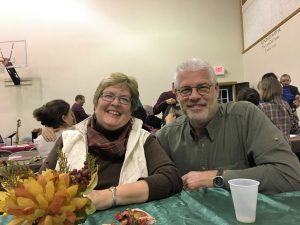 Third John
Third John
The elder, to my dear friend Gaius, whom I love in the truth. Dear friend, I pray that you may enjoy good health and that all may go well with you, even as your soul is getting along well (3 John 1:1-2 NIV).
Third John is one of the lesser known books of the Bible. While a book like Jeremiah seems daunting because of its length, Third John can seem unimportant, because it is so short. This week we have focused Second John and Third John in our group reading, because we need to become fully aware of the message the Spirit tells us in these letters. We usually think of the Bible as a large book, but given its essential message, it is compact. Every book in the Book of books has a valuable message for people to listen to, to believe, and to live accordingly.
Third John is addressed to Gaius, and other than this letter, we know nothing more about him. (Gaius was a popular name in the Roman world.) From the subject matter of the letter, it seems that he was the leader on a house church probably near the end of the first century. He was also a dear friend of the Apostle John, who calls himself “the elder”. (John was probably the only surviving apostle at the time of the letter.)
John called Gaius his “dear friend”, which is the same word as “loved one”. He refered to Gaius three times in this manner, and he used the word “love” in reference to Gaius once and two other times in the letter. In addition, we see that the word for “friend” (a similar word also meaning love) occurs twice at the end of the letter. Clearly, one theme of the book is love.
- A friend is someone we love. We set our affections on them to give ourselves sacrificially for their good. The well-being of our friends concerns us. So then, what do we do for our friends? This letter points us to actions that we ought to be doing for them.
- We pray for our friends (1:2). John was concerned about the physical needs of Gaius, including his health and the general provision for his life. We tend to focus on physical needs when we share prayer requests, don’t we? We ought to pray for spiritual needs; for example, how is a friend interacting with God and others as he or she faces a severe illness. Some overreact and don’t think we should pray for physical needs, but John’s example shows us that we ought to.
- We express the joy we have in our friends (1:3). John heard from other Christians about Gaius’ faithfulness, and it filled him with great joy. It does give us joy when we learn of the spiritual progress of others. The point here is that we can share the joy with the one who produced the joy. People need to be appreciated, and we need to tell them.
- We commend our friends for the good they are doing in partnership for the good news (1:5). This is closely related to the preceding. John encouraged Gaius for his spiritual sacrifice (cf. Hebrews 13:16) of helping other brothers and sisters in Christ. We should often think about how we can encourage others in doing good.
- We share our friends’ problems (1:9-10). John listened to Gaius and thought about what he could do to help him. Yes, the one helping others needed help in another area. John let Gaius know what he would do to help Gaius in his local gathering where someone else caused problems.
- We admonish our friends (1:11). We give them warning-instruction to help them avoid spiritual problems. We need to talk boldly to each other when we sense our friends might be in spiritual danger.
- We long to be with our friends (1:13-14). John planned to do more than write. He wanted to visit Gaius and have time with his friend. We need to share life with our friends.
How is your relationship with your friends?
Grace and peace, David
